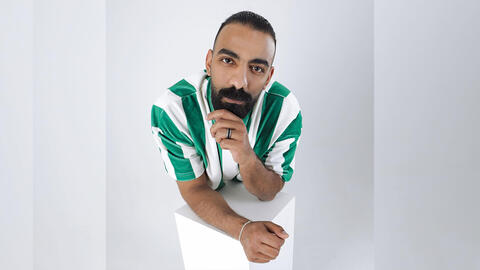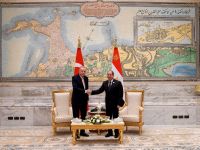Albawaba Entertainment's reporter Alex Abumuhor sat down with this year's Summer Jam performers for an interview where artists expressed their excitement about performing under Amman's clear skies.
The first interview of Albawaba's journey for Summer Jam was with Jordanian singer-songwriter Hana Malhas, who opened up about how she rose to fame, and how she creates her unique sound of alternative Arabic songs.
When asked about what inspires her to write, Hana stated that songwriting is an outlet and a way to communicate, and she loves writing about 'meaningful experiences that people can relate to', though she admits that her songs are ‘sometimes layered and can be interpreted in whatever way moves you’.
Musically, she is influenced by many types of music and artists, but 'in the end it’s about saying what you need to say in your own voice'.

Hana Malhas
She started learning about the indie music industry while studying and working in the United States, joining a small band after meeting musicians at an open mic night.
''It was a great learning curve, I met local, regional and national musicians, I got a taste of what it takes to tour, release albums, etc - in general what a musician’s life is. Before that all I knew was how to write a song and play a couple of instruments'' The Mazar singer said.
Malhas went on to explain how life experiences led her to realizing she wanted to pursue music professionally in the Middle East.
''I found my music had a sense of purpose when I moved back to Jordan, and especially after I founded ‘BalaFeesh’, this concert series project that hosted indie Arab artists in an intimate listening space, the aim was for us to start doing collaborations and giving audiences something different, and it ended up being very successful.''

Hana Malhas
Hana Malhas continued: 'I felt the importance of being part of the growth of the indie Arabic music scene, because back then it was just starting,'' She added: ‘I was a part of its development - as a contributor and a witness - & my music grew with it.''
Alexandra asked Hana to share more about the concept behind her hit ''Ya Msafer Wahdak'' (Solo Traveller).
Malhas explained that her rendition of the original classic by the icon Mohammad Abdel Wahhab was her way of ''paying homage to legend, especially because he was the first to blend between Arabic and western music - which wasn’t the norm back then. He was criticized for it too, it felt like by producing a modern take on the classic, it was as if I was saying - I am trying to follow your pioneering experimental steps.''
Hana Malhas added that this song is sentimental to her as she was constantly traveling between what felt like different homes, but that 'over the years, the meaning of the song for me changed from love across distance or homesickness to talking to the different parts yourself.
''I used to play it all the time to myself, but I didn’t think of releasing it until this year, I teamed with Amr Shomali (producer ‘No One), I played my version of it to Amr on the piano, and he suggested combining darker EDM elements into the arrangement and production, and it just clicked.''
Abumuhor asked Hana Malhas about her next steps, music genres, and the language she prefers writing and signing in, to which the songwriter admitted that 'There is something special about the messaging and emotions you can get across while singing/writing/performing in Arabic - some things are just more relatable, sometimes deeper, though I’ll continue writing in both English and Arabic - whatever feels right and authentic to the song itself and what I am writing or singing about.''
The Jordanian artist went on to talk about experimenting with new genres. She credits all three producers she’s worked with so far (Khaled Nimry, Nasir AlBashir, Amr Shomali) and her manager Hana Gammoh for pushing her out of her comfort zone of acoustic songwriting, into experimenting with electronic elements, genre blending, adopting technology into songwriting and performance, and collaborating with co-writers, all things that she feels have expanded her range.
''I’m working with Nasir AlBashir now on a few new tracks - the next one will be coming out in about a month'' she said, Hana Malhas revealed in the Interview that from a young age, she did not think that music can be her full time career, but what sparked the idea was seeing other artists perform on stage abroad - the idea that you can deliver stories and an experience just by ‘singing your own words with an instrument to an audience’ - that impacted her to want that for herself.
'When I first launched a solo project professionally, there was no industry, and certainly not many role models for female musicians, that is when I started BalaFeesh & I met musicians from Lebanon, Egypt, Saudi, Palestine, Jordan, and from everywhere really, then I realized oh we have a scene and I can be a part of it, it took me time to realize that I wanted to do it.''









